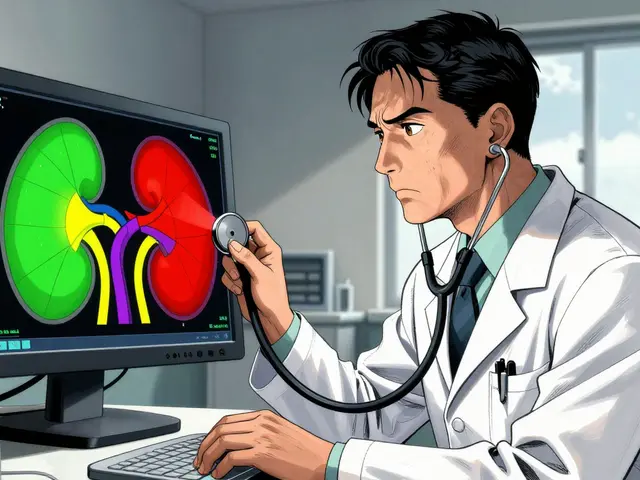Understanding Side Effects: What Happens When Medications Affect You
When you start a new medication, one of the biggest concerns is side effects. These are unwanted reactions your body might have when taking a drug. Not everyone experiences them, but knowing what to expect can help you avoid surprises and deal with issues quickly.
Medications work by targeting specific problems, but because our bodies are complex, that action can also affect other parts and cause side effects. For example, a common cold medicine might relieve congestion but also make you drowsy—this is a typical side effect.
Common Side Effects and Why They Happen
Some side effects are mild, like dry mouth or mild stomach aches, while others can be more serious, like allergic reactions or changes in heart rate. The chance of side effects often depends on the type of medication, dosage, your health condition, and even other drugs you're taking.
Take the case of blood pressure medications like Micardis (telmisartan). They can lower blood pressure effectively but may also cause dizziness or fatigue in some people. Knowing this helps you watch out for symptoms that need medical attention.
How to Manage and Reduce Side Effects
One way to manage side effects is by following your doctor's instructions closely, including dosage and timing. Sometimes, side effects go away after your body adjusts. If they don’t, reporting them quickly helps your healthcare provider adjust your treatment or suggest alternatives.
Also, lifestyle adjustments can help. For example, if a medication causes nausea, eating smaller meals or staying hydrated might ease symptoms. Never stop or change medicine on your own—always check with a healthcare professional first.
Remember, detailed info on side effects is often included in the medication leaflet, but real-world experiences and trusted medical advice give a fuller picture. At PharmaDirect, we gather and share honest insights about medications, so you can be confident about your health decisions without the guesswork.
9

Antidepressants: Types and Safety Profiles for Patients
Antidepressants help millions manage depression and anxiety, but they come with risks. Learn the differences between SSRI, SNRI, and older types, what side effects to expect, and how to safely use them.
2

Thorazine: Uses, Side Effects, and What to Expect from Chlorpromazine
Explore Thorazine, its uses, side effects, how it works, real-life stories, and tips for safe use. Learn its impact on mental health care.
5

Zyprexa: What to Know About Olanzapine, Side Effects, Uses, and Dosage
Zyprexa, known generically as olanzapine, is a widely used antipsychotic medication. This article explores how Zyprexa works, what it's used for, its potential side effects, tips for managing those side effects, and what to talk about with your doctor. You'll find honest insights, practical advice, and clear, relatable explanations—so you can make informed decisions about your mental health treatment.
25

Losartan and Itching: What the Science Really Says About Pruritus Side Effects
Scratching while on losartan? You’re not alone. This article breaks down why itching (pruritus) can happen with this blood pressure medication, what real-life research shows, and how you can find relief. Find out which symptoms signal an emergency, and learn specific, practical steps you can take—right now—to tackle losartan-induced itching. Get science-based tips and stay informed on your treatment options without the fluff.




